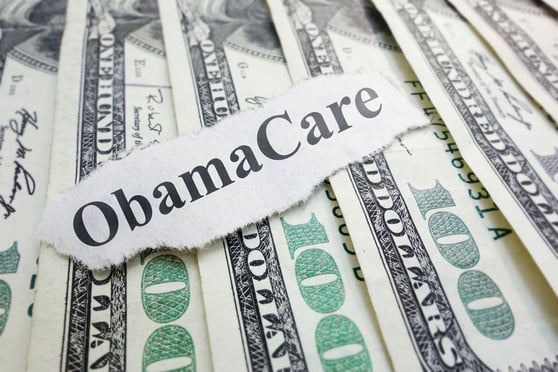WASHINGTON BUREAU -- The new federal budget deal resolution maynot refer directly to private health insurance, but it could havemajor effects on the health market, an analyst says.
|The Senate voted 74-26 today to pass a motion approving theBudget Control Act of 2011, which was packaged in the form ofHouse Resolution 384 -- – a measure “providing for consideration ofS. 365, to make a technical amendment to the Education SciencesReform Act of 2002.”
|The House voted 269-161 to pass the measure Monday.
|The measure provides the legal authority the U.S. governmentneeds to borrow more money and continue to make payments ongovernment obligations.
|In a television address to the nation immediately after theSenate vote, President Obama said he would sign the measureimmediately. The debt ceiling deal passed by Congress is “animportant first step for ensuring that as a nation we don't livebeyond our means,” Obama said in a statement.
|Beth Mantz-Steindecker of Washington Analysis, Washington – a“buy side” research firm that serves hedge funds and institutionalinvestors -- says in a research note that the deficit controlprocedure created by the budget control measure seems likely tolead to “sequestration.”
|Sequestration would create a wave of automatic, across-the-boardcuts that would exempt some programs -- such as Medicaid, SocialSecurity and veterans programs – but hit Medicare hard,Mantz-Steindecker says.
|Under one scenario, Medicare Advantage could face a 2%across-the-board starting Oct. 1, 2013, Mantz-Steindecker says.
|The budget control measure requires a 12-member specialcommission established by Congress to help Congress achieve atleast $1.2 trillion in savings over a 10-year period byNovember.
|If Congress fails to make $1.2 trillion in cuts, that wouldtrigger a series of across-the-board cuts big enough to make up thedifference between what Congress actually saves and $1.2trillion.
|Some have estimates the across-the-board cuts could amount to$300 billion over 10 years.
|Changes to Medicare could take the form of cuts to providersrather than increased cost-sharing for beneficiaries, benefit cutsor increasing the age of eligibility, Mantz-Steindecker says.
|The across-the-board cut also could affect the federal subsidiescreated by the Patient Protection and Affordable Care Act of 2010(PPACA) that are supposed to help consumers and small employers buyhealth coverage through a new health insurance exchange systemstarting in 2014.
|“We recognize that this isn’t an idea that has been recentlydiscussed, but it could be mentioned,” Mantz-Steindecker says.“Therefore, this could result in fewer purchasers of healthinsurance via the exchange or, at a minimum, could change the plansthat would have been bought. Both would impact those diversifiedinsurers weighing participation in the exchanges.”
|Mantz-Steindecker has based her analysis partly on the work ofthe Gang of Six in the Senate and on the deficit commissionproposals released in 2010.
|Under those scenarios, she says, cuts in Medicare Advantageplans and pharmacy benefit managers “are at low risk.”
|Mantz-Steindecker says Medicaid health maintenance organizationscould benefit from increased enrollment.
Complete your profile to continue reading and get FREE access to BenefitsPRO, part of your ALM digital membership.
Your access to unlimited BenefitsPRO content isn’t changing.
Once you are an ALM digital member, you’ll receive:
- Critical BenefitsPRO information including cutting edge post-reform success strategies, access to educational webcasts and videos, resources from industry leaders, and informative Newsletters.
- Exclusive discounts on ALM, BenefitsPRO magazine and BenefitsPRO.com events
- Access to other award-winning ALM websites including ThinkAdvisor.com and Law.com
Already have an account? Sign In
© 2024 ALM Global, LLC, All Rights Reserved. Request academic re-use from www.copyright.com. All other uses, submit a request to [email protected]. For more information visit Asset & Logo Licensing.








